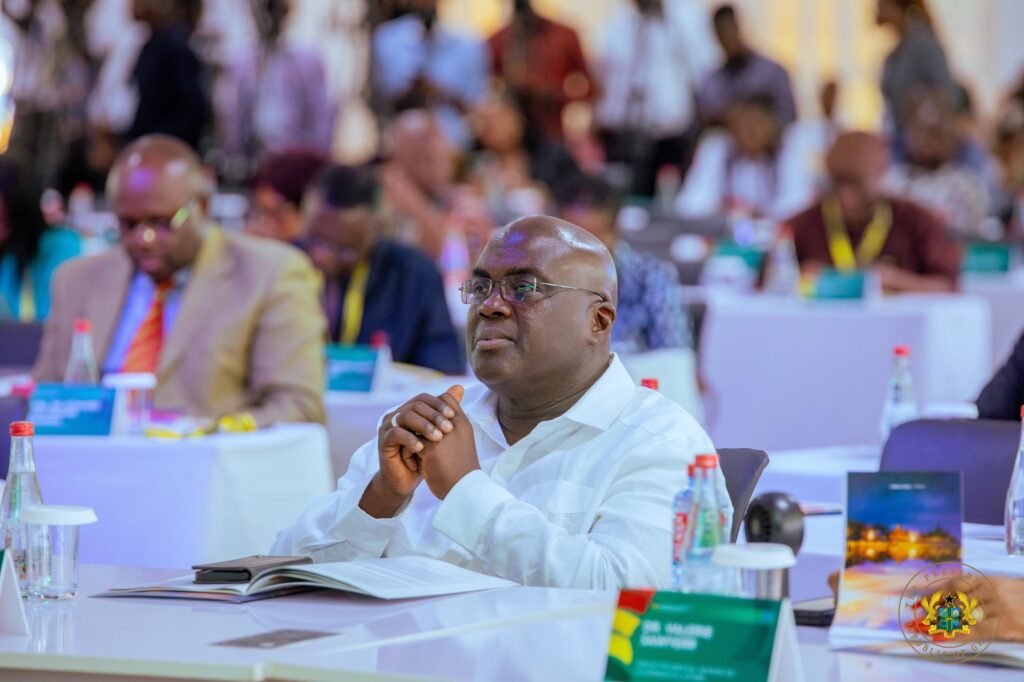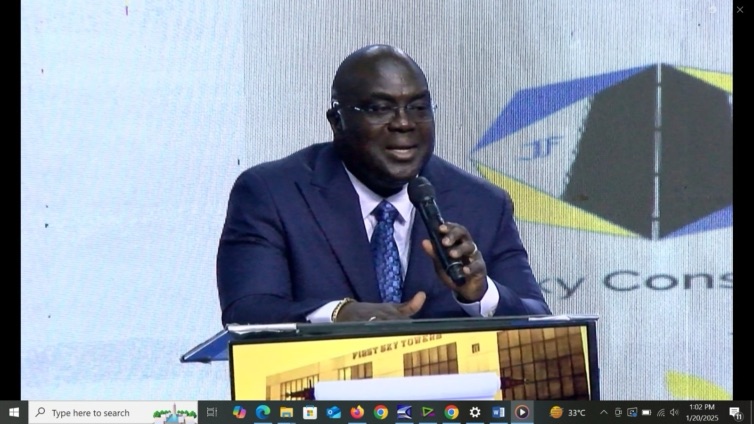The Chief of Staff at the Presidency, Julius Debrah, has called on the Ghana Police Service to adopt a proactive approach to policing, emphasising crime prevention as the foundation of modern law enforcement.
Speaking at the launch of a book titled “An Aroma of Policing: A Life of Service in Law Enforcement and Global Peacekeeping”, authored by former Inspector General of Police Mohammed Ahmed Alhassan, Mr Debrah said Ghana must move away from reactive policing models. Instead, the country should embrace intelligence-led strategies, enhanced police visibility, and strong community partnerships.
He stressed the importance of rebuilding public trust and expanding early warning systems in communities, noting that these are critical to preventing crime before it occurs.
The 681-page memoir, which features 36 chapters, chronicles the author’s modest beginnings, leadership journey, and his contributions to transforming the Police Service through community policing and global peacekeeping efforts.
Mr Debrah hailed the book as a remarkable contribution to Ghana’s national discourse on law enforcement, leadership, and institutional reform.
“Our Police Service must invest in leaders who are not only operationally competent but also committed to mentorship, innovation, and continuous learning,” he stated.

He further underscored the urgency of specialist training in critical areas such as cybercrime, counterterrorism, forensics, maritime security, and public order management. Revamping police training institutions, he said, is vital to cultivating a disciplined and modern force capable of addressing 21st-century security challenges.
Mr Debrah also highlighted the importance of police welfare, stating that morale and professionalism are inextricably linked. He reaffirmed the government’s commitment to improving conditions of service, including housing and healthcare.

He announced plans to expand institutional support to encourage greater female participation in UN and regional peace operations, enhancing Ghana’s reputation in global peacekeeping.
Inspector General of Police, Mr Christian Tetteh Yohuno, praised the book as a celebration of a transformative journey. He lauded the author’s contributions to policing, stating that his tenure as IGP was marked by integrity, innovation, and restored public confidence.
“His leadership restored public trust and strengthened the bond between the police and communities,” Mr Yohuno said, urging stakeholders and security experts to read the book to understand the essence of effective policing.

The author, Mr Mohammed Ahmed Alhassan, shared that even in retirement, his heart remains with the Police Service. He felt compelled to document his journey to preserve institutional memory and offer valuable lessons for future generations.
“One of the key issues I raised in the book is how the discontinuation of useful reform programmes has harmed the Service,” he said.
“Institutions do not grow through constant reinvention; they are built through continuity, reflection, and purposeful reform.”
The book launch served not only as a tribute to a distinguished career but also as a clarion call for sustainable transformation in policing for national development.

